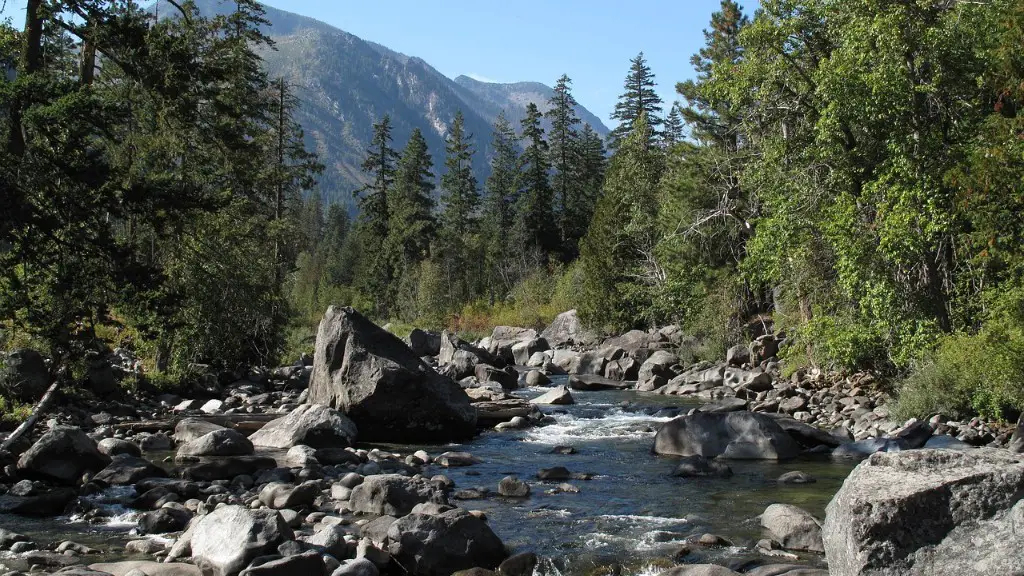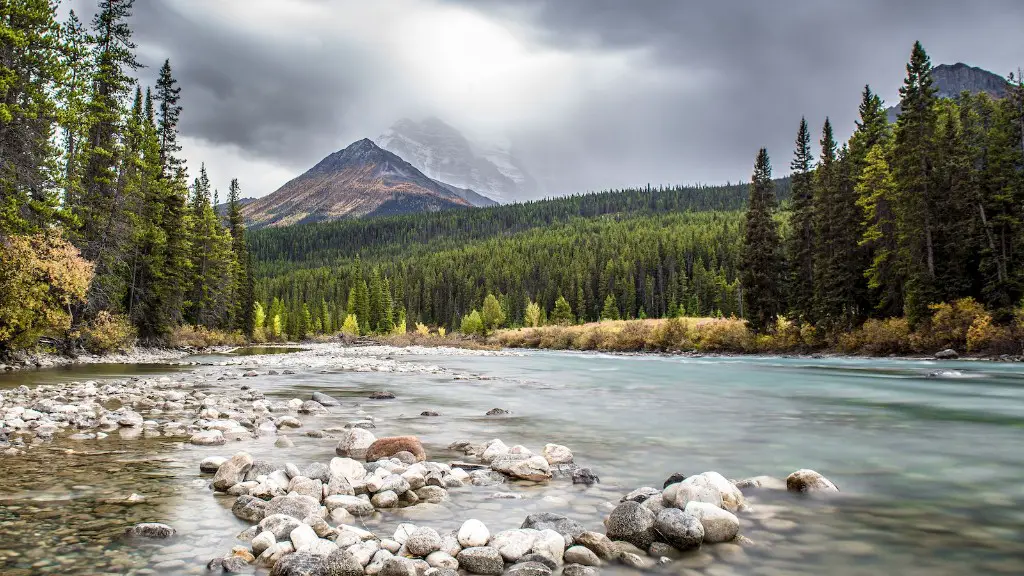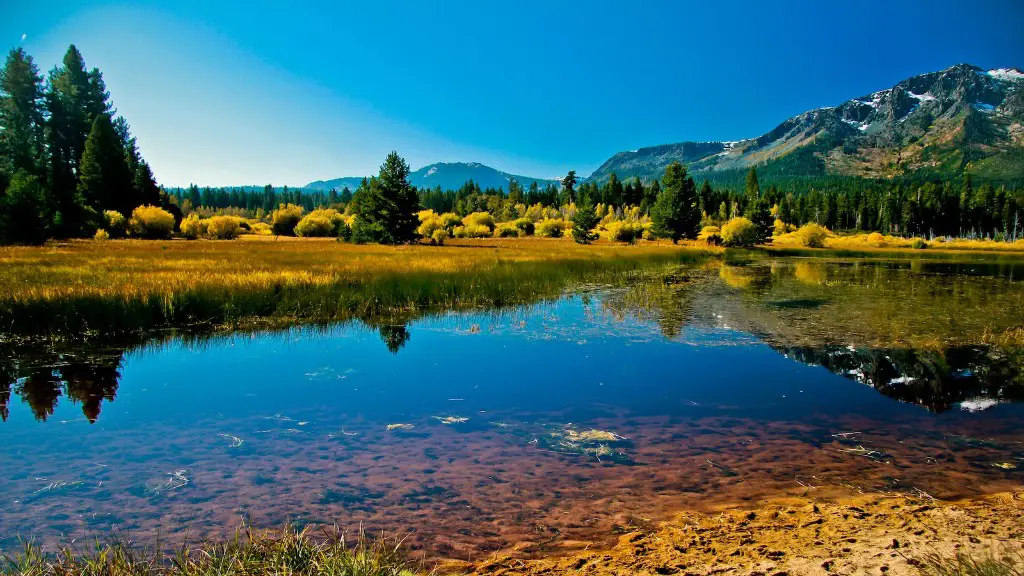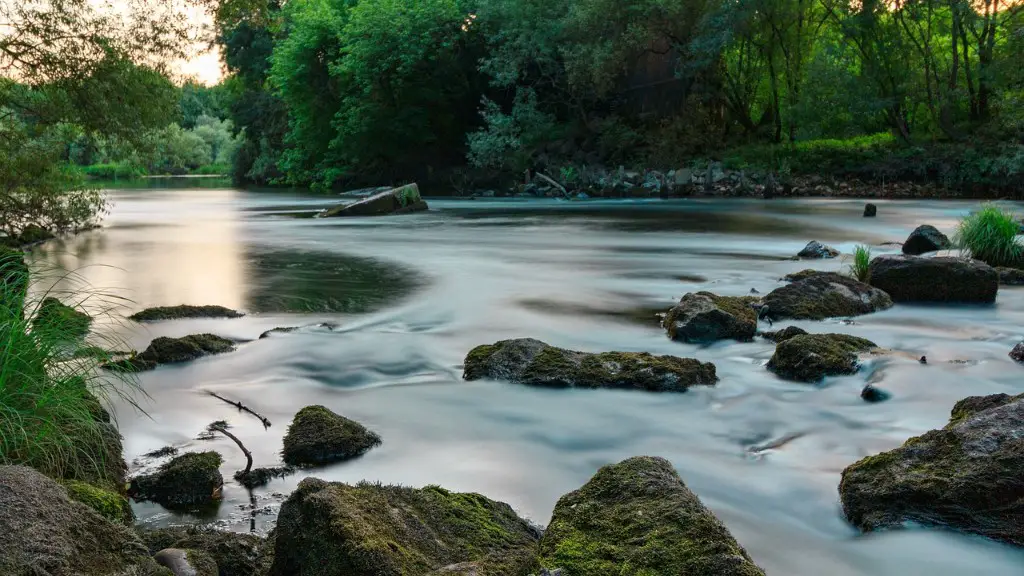The Mississippi River is one of the major arteries of the United States, connecting states throughout the Midwest, Great Plains and South. But just how many rivers are connected to it? The linkages are immense and complex, offering an insight into the history and importance of this important waterway.
Many people are surprised at the large number of rivers that are connected to the Mississippi River. In total, there are nearly 300 known tributaries and branches that are part of the entire Mississippi River system. These rivers range from the small creeks and streams near the headwaters of the river to large rivers that extend up to thousands of miles.
The rivers that connect to the Mississippi River include some of the largest waterways in the United States, such as the Missouri River, the Ohio River and the Arkansas River. The Mississippi also connects to smaller rivers that are found in Arkansas, Louisiana, Missouri, and other states. The linkages of these waterways provide an incredible network of resources that have been used by different cultures over the centuries.
The importance of these rivers to the United States cannot be overstated. The Mississippi River is a major shipping route that connects industrial areas in the Midwest, while the other rivers also provide useful sources of power and transportation. Additionally, the connection of the tributaries to the Mississippi River has been integral to the habitats of many aquatic species, providing them with homes and food sources.
The geography of the Mississippi River is quite complex, and its influence is far-reaching. Many experts believe that the Mississippi River formed during the last Ice Age, around 15,000 years ago. The melting of the glaciers in the region created vast lakes that eventually drained into the northern portion of what would become the river. As the glaciers continued to melt, the tributaries were also formed, providing the intricate network that currently exists.
The linkages of these rivers represent a fascinating part of US history and geography. The fact that the Mississippi River is connected to nearly 300 rivers is proof of its immense importance and power. Its vastness and complexity is part of what makes it such an impressive and important waterway in the US.
Mississippi River and its Economic Cruciality
Not only has the Mississippi River been a crucial source of water, food, and transportation but its played a very important role in the economics of the United States as well. The river has been a crucial source of income and wealth throughout the country. It has been used for a variety of economic activities such as fishing, shipping, and tourism, and has served as an important pathway for goods and services. In recent years, the Mississippi River has become even more important for the economy of the US. The river has become a major transportation route for goods to and from other countries, and plays a major role in global trade.
The Mississippi River has also played an important role in the development of industries such as agriculture and manufacturing. The river has provided a means of transporting food and other goods from one part of the country to another. Additionally, its tributaries have been major sources of energy, such as hydroelectric power, for many states. Many cities located along the Mississippi River have also benefited from the economic development that has occurred on the river.
The importance of the Mississippi River to the US economy cannot be overstated. It is an integral part of the country’s infrastructure and its importance to transportation, communication, and trade will continue to be a major factor in sustaining and expanding the economic activity of the nation.
The Mississippi is Keystone to the Ecology
The Mississippi River has also been crucial when it comes to ecology and the preservation of the environment. Its vast network of rivers and streams is home to a large variety of organisms and species, many of which are only found in this area. The river provides important habitats for these species, offering an opportunity for them to thrive and grow. The river is also home to a variety of wetland ecosystems, providing critical breeding grounds for many species of birds, amphibians, and other aquatic life.
The importance of the Mississippi River in terms of the environment cannot be understated. It is a major source of clean water and has been key to protecting water sources from contamination. Additionally, the wetlands along the river are crucial in regulating the flow of water and reducing the risk of flooding. The river has also been important in helping to maintain habitats for many species of wildlife.
It is safe to say that the Mississippi River is an invaluable resource for the inhabitants of the United States. Its vastness and complexity is a testament to its importance and influence. Hundreds of rivers connect to the Mississippi, and their connections provide an incredible network of resources for the country.
The History and the Mystery
The history of the Mississippi River is an interesting one. Historically, it has been populated by various Native American tribes, and its tributaries have been a source of trading between different cultures. The river has been a source of conflict as well, with a multitude of different battles taking place along its banks over the centuries.
The river has also been a mystery to many, with legends and strange stories cropping up over time. One of the more famous legends tells of a creature called the ~louisiana jibaros~, a giant snake that is said to inhabit the depths of the Mississippi River. There have been numerous sightings of this mysterious creature, but whether or not it actually exists remains unknown.
Regardless of the history, myths and legends that are attached to the Mississippi River, it remains an important waterway for the United States. Its connection to nearly 300 tributaries across the country is evidence of its power and influence.
Mississippi River’s Cultural Pulse
The Mississippi River has been crucially important for the cultural development of the United States. For centuries, it has been a pathway for the spread of ideas, goods, and services between different cultures. Many of the major cities and towns located along the river have become hubs of culture, representing the diversity of the country.
Additionally, the river has been home to many diverse cultures. For example, the Native American tribes have inhabited the region for centuries and their cultures have been preserved and celebrated along the river. African-American culture has also flourished along the Mississippi, with many artists, musicians, and writers emerging from this part of the country.
The Mississippi River has been a major source of American culture, with many of the iconic images of the country emerging along its banks. From the music of Memphis to the art of New Orleans, the river has been an integral part of the development of American culture.
The Mississippi River holds a special place in the hearts of many people across the United States. Its complexity and importance are undeniable, and its connection to hundreds of tributary rivers is proof of its immense influence.
The Mighty Mississippi’s Impact on Humanity
For centuries, the Mississippi River has been a vital source of sustenance for many Native American tribes. Its tributaries were a source of food, shelter, and transportation, and its importance to these cultures has been long-standing. Additionally, the river has provided many different cultures with a means of trading goods, services, and ideas.
The importance of the Mississippi River as a source of sustenance has been of utmost importance throughout history. Its vast and intricate system of rivers provided not only food and transportation but also energy. For example, many cities and towns located near the river benefited from the use of hydroelectric power that was generated by the tributaries.
Moreover, the river has been a source of inspiration for many people. From the music of Memphis to the literature inspired by the rivers and its tributaries, the Mississippi River has inspired generations of people.
The Mississippi River has had a significant impact on humanity throughout its existence. Its complexity and influence are undeniable, and its linkages to nearly 300 different rivers are evidence of its importance.
The Breath-Taking ‘Muddy River’
Finally, the Mississippi River is a remarkable natural wonder. Though it may be called the `Muddy River’ due to its colour, the Mississippi River is truly a sight to behold. Its tributaries create an incredible mosaic of blue, green, and brown tones, and the beauty of the river is difficult to put into words.
The river is also impressive because of its sheer size and scale. The Mississippi River spans nearly 2,340 miles, making it the fourth largest river in the world. It is also one of the most powerful, with an impressive average discharge rate of 436,000 cubic feet per second.
Regardless of its name, the Mississippi River is a breathtaking natural wonder. Its sheer size and power, as well as its beauty, are truly impressive.





